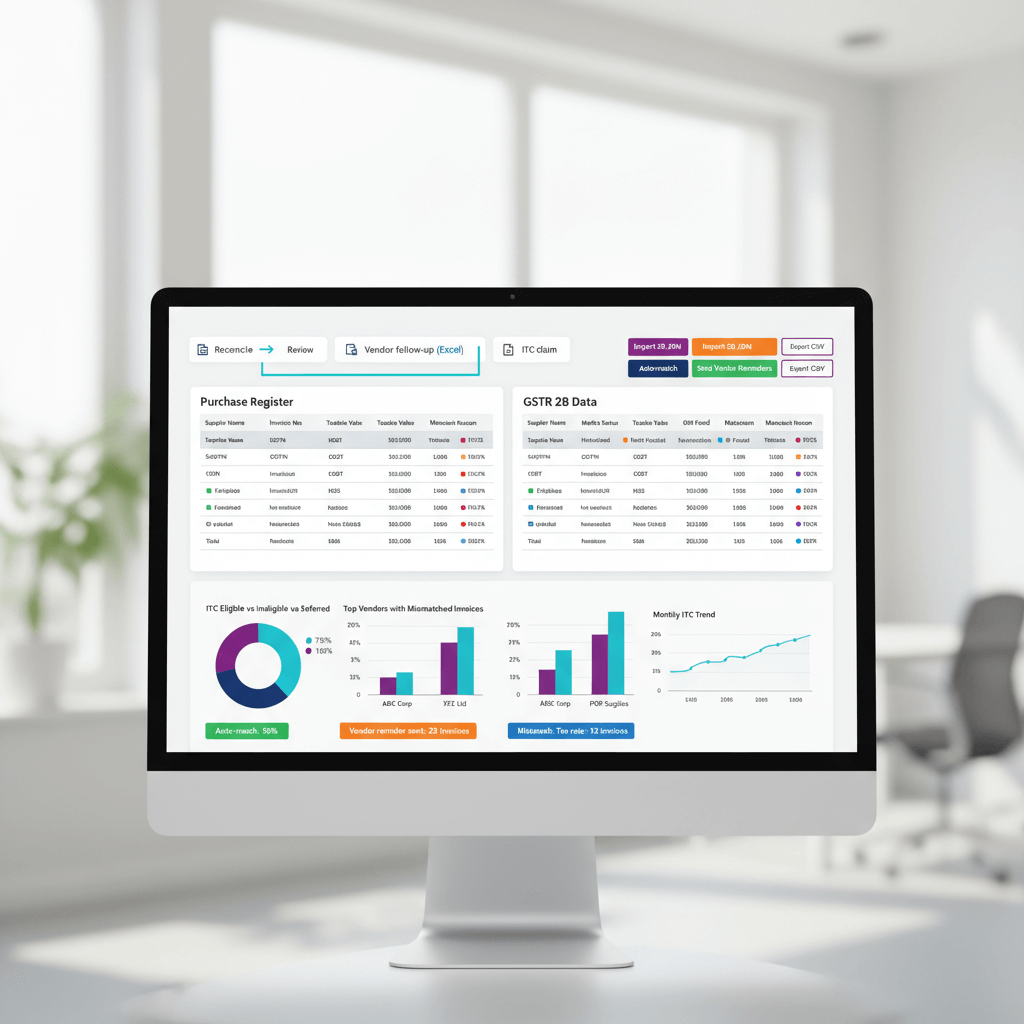Key takeaways
- Responsible AI augments expert judgment, not replaces human oversight.
- Bias in machine learning can silently corrupt financial data and tax compliance.
- Enterprise-grade data privacy and security are essential in cloud-based accounting.
- Transparent audit trails and adaptable compliance features meet evolving regulations.
- Human-centric AI workflows build trust, scalability, and enhanced client service.
- Practical implementation requires due diligence, pilot testing, and continuous training.
- The future of AI in accounting depends on ethical foundations and ongoing oversight.
What Does Responsible AI Finance Mean?
Responsible AI finance goes beyond fancy algorithms and automation promises. It’s about deploying AI as a support tool that enhances, rather than replaces, professional judgment in financial decision making.
Think of AI as a highly skilled junior accountant who never gets tired and never makes calculation errors, but always needs your oversight on complex decisions.
The hybrid approach is what’s working best in Indian firms today. AI handles the grunt work—data entry, pattern recognition, and routine calculations—while Chartered Accountants remain accountable for analysis, interpretation, and strategic decisions.
- Automated GST categorization and reconciliation streamlines compliance reporting without removing human oversight.
- AI assisted TDS calculations can process hundreds of transactions in minutes, flagging inconsistencies that might take hours to spot manually.
- Automated vendor invoice matching reduces manual errors and speeds up the reconciliation process.
The Risks of Bias in Machine Learning Bookkeeping
Bias in machine learning bookkeeping isn’t just theoretical—it can quietly corrupt your financial data and lead to compliance failures.
- Vendor mismatches due to historical mislabeling can lead to incorrect expense categorization and distorted profit and loss statements.
- Foreign currency posting errors may arise from fluctuating exchange rates and timing differences, creating significant ledger discrepancies.
- Misapplied tax codes pose a serious risk, potentially causing incorrect GST filings and costly penalties.
The solution isn’t to avoid AI altogether but to implement robust human oversight mechanisms, including regular audits of AI decisions, systematic reviews of unusual transactions, and maintaining clear audit trails that show how and why the AI made specific choices.
Data Privacy in Accounting Software
When it comes to data privacy, the stakes couldn’t be higher. Modern AI accounting tools process sensitive information—bank account numbers, payroll data, vendor payments—and each data point must be encrypted, access controlled, and audit tracked to meet compliance requirements.
Indian firms must navigate the Digital Personal Data Protection Act (DPDP) and, for cross-border operations, international standards like GDPR. Key questions include:
- Where is your data stored?
- Who has access to it?
- How is it encrypted?
- What are the vendor’s data retention policies?
- What happens if there’s a security breach?
- Can you export your data easily?
Regulatory Guidance and Compliance for AI in Accounting
The regulatory guidance AI accounting landscape in India is evolving rapidly, requiring systems that adapt to new rules while maintaining efficiency.
- RBI guidelines for Account Aggregators govern consent management, data retention, and security protocols for bank feeds.
- Ministry of Corporate Affairs requirements mandate detailed audit trails, support for digital signatures, and compliance with Indian accounting standards.
- International compliance such as GDPR and other national data protection laws impact cross-border firms.
Audit trails and decision transparency are essential. Your AI platform should document its logic, flag assumptions, and allow human reviewers to trace automated entries back to their source.
How AI Accountant Approaches Ethics and Responsibility
When evaluating ethical AI accounting solutions, it’s worth examining how leading platforms address these challenges. Key players include:
- AI Accountant, which exemplifies a human-in-the-loop approach.
- Tally with AI features.
- Zoho Books with automation capabilities.
- QuickBooks and Xero as international options.
Key Ethical Features in AI Accountant
- Specialized OCR for Indian bank formats ensures accurate data extraction with human review for ambiguous cases.
- Transparent transaction categorization provides clear visibility into AI decision logic.
- Anomaly flagging with human intervention routes unusual transactions for professional review.
- Sensitive case routing escalates large or high-risk transactions to qualified accountants.
- Regular model updates and bias monitoring keep the AI system accurate over time.
Building Human-Centric AI in Indian Accounting Workflows
The future of accounting in India lies in workflows where humans and machines collaborate seamlessly. Human-centric AI design places professional accountants at the center, using technology to amplify their capabilities.
Key advantages of this approach include:
- Scalability without sacrificing quality or attention to detail.
- Consistency across complex tax laws and compliance requirements.
- Enhanced client service by freeing professionals for advisory work.
Maintaining professional skepticism, demanding transparency, and requiring audit trails ensures that AI serves as a trusted assistant.
Practical Steps for Ethical AI Implementation
- Due diligence and vendor evaluation: Request documentation on AI training data, bias monitoring, and security protocols.
- Pilot programs with limited scope allow you to test AI on non-critical processes first.
- Staff training and change management: Ensure the team understands system limitations and intervention points.
- Regular audits and performance monitoring: Establish review processes for AI decisions and monitor for bias or drift.
- Client communication and transparency: Explain how AI is used, what safeguards exist, and how professional oversight is maintained.
- Documented policies and procedures: Define guidelines for overrides and handling edge cases.
- Continuous improvement processes: Regularly review AI performance and update training data based on feedback.
- Emergency procedures and fallback plans: Prepare manual backup processes for critical functions.
The Future of Ethical AI in Indian Accounting
As AI adoption accelerates, success will depend on strong ethical foundations. Anticipate:
- Ongoing regulatory evolution with clearer AI standards.
- Advances in AI capabilities paired with new ethical challenges.
- Professional development in AI literacy and oversight skills.
- Evolving client expectations for speed, accuracy, and transparency.
The accountants who thrive will be those who embrace AI thoughtfully, upholding trust, accuracy, and professional judgment.
FAQ
How can I ensure the AI Accountant tool complies with Indian GST regulations?
Start by reviewing the platform’s GST categorization rules and audit trail features. Test sample transactions, verify how the AI suggests GST codes, and ensure any flagged items are routed for human review.
What steps should a CA take to audit machine learning outputs in bookkeeping?
Implement regular sample checks, compare AI-generated entries with manual records, and document any overrides. Maintain clear audit logs that show the AI’s decision logic for each entry.
How do I validate data privacy measures in my cloud based accounting software?
Ask providers for compliance certifications, encryption standards, data retention policies, and independent security audit reports. Verify access controls and test data export capabilities.
Can AI Accountant handle TDS calculations accurately for various Indian tax slabs?
Yes, AI Accountant’s TDS module is trained on current tax slab structures, but you should cross-check a sample of calculations and confirm any anomalies before filing.
What are best practices for documenting AI decision making in audit trails?
Ensure your platform logs each automated action, timestamps changes, records confidence scores, and tracks user interventions. This creates a transparent history for regulators and clients.
How do we detect and correct bias in automated transaction categorization?
Review categorization patterns for outliers, flag recurring misclassifications, and provide feedback to retrain the model. A hybrid review process helps catch bias early.
What fallback procedures should be in place if AI Accountant fails or delivers errors?
Maintain manual templates for key processes, keep local backups of financial data, and establish protocols for reverting to manual bookkeeping until the issue is resolved.
How can I integrate AI Accountant with existing Tally or Zoho Books workflows?
Use the platform’s native connectors or API integrations. Map data fields carefully, run parallel tests, and train your team on when to input data in each system.
What training should staff receive to maintain professional oversight of AI systems?
Provide sessions on system limitations, interpretation of AI outputs, intervention triggers, and the process for documenting overrides and escalations.
How often should I review model updates and bias reports in AI Accountant?
Schedule quarterly reviews of performance metrics, update training data based on business changes, and audit bias reports after major model upgrades.
-01%201.svg)





